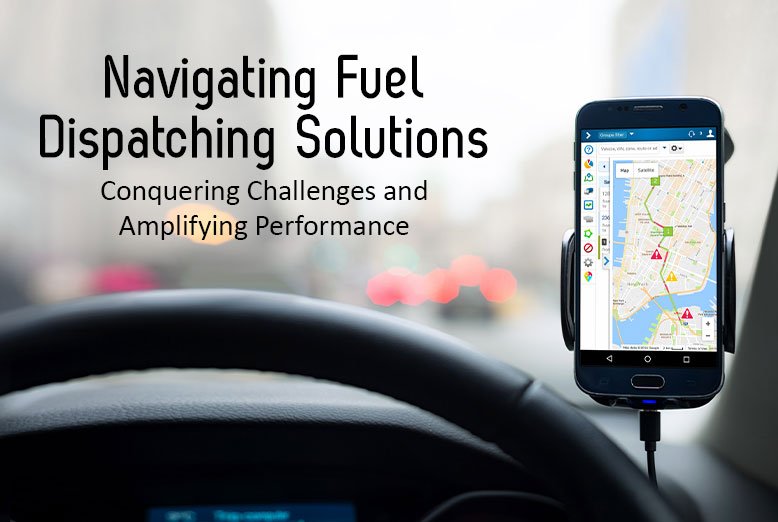In the intricate world of fuel management, dispatching solutions stand as pivotal tools for efficiency, cost control, and environmental sustainability. The efficient dispatching of fuel plays a vital role in various industries, including transportation, logistics, and energy production. Yet, with evolving technologies, regulatory landscapes, and market dynamics, challenges arise that demand innovative solutions. This article delves into the realm of fuel dispatching solutions, exploring the hurdles they face and the strategies to maximize their performance.
Understanding Fuel Dispatching:
Fuel dispatching encompasses the processes involved in scheduling, coordinating, and monitoring the delivery of fuel from its source to the end-user. This entails managing fleets of vehicles, optimizing routes, ensuring timely deliveries, and maintaining compliance with regulations. Effective dispatching is crucial for minimizing costs, reducing emissions, and enhancing customer satisfaction. Utilizing advanced fuel dispatching software can further streamline these processes, offering real-time insights and automation to drive efficiency.
Challenges Faced by Fuel Dispatching Solutions:
1. Complex Logistics: Managing the logistics of fuel delivery involves coordinating multiple variables such as vehicle capacity, fuel type, delivery locations, and traffic conditions. Optimizing these factors to ensure efficient routes and timely deliveries can be challenging, especially in urban areas with congested traffic.
2. Regulatory Compliance: Fuel dispatching solutions must adhere to a myriad of regulations governing fuel transportation, storage, and distribution. Compliance with environmental standards, safety protocols, and taxation laws adds layers of complexity to the dispatching process, requiring robust systems to ensure adherence.
3. Fluctuating Demand: Demand for fuel is subject to seasonal variations, economic trends, and unforeseen events such as natural disasters or geopolitical shifts. Predicting and responding to these fluctuations in real-time is crucial for maintaining inventory levels, minimizing stockouts, and optimizing delivery schedules.
4. Data Integration: Fuel dispatching relies heavily on data from various sources, including vehicle telemetry, weather forecasts, customer orders, and inventory levels. Integrating and analyzing this data in real-time poses significant technical challenges, particularly for legacy systems that lack interoperability.
5. Fuel Theft and Fraud: The transportation and storage of fuel present opportunities for theft and fraud, posing security risks and financial losses for fuel distributors. Ensuring the integrity of fuel dispatching operations requires implementing robust security measures, such as tamper-proof seals, GPS tracking, and driver authentication.
Strategies for Maximizing Performance:
1. Advanced Routing Algorithms: Leveraging cutting-edge algorithms and machine learning techniques can optimize fuel delivery routes based on real-time traffic data, historical patterns, and vehicle capabilities. Dynamic routing algorithms can adapt to changing conditions on the fly, minimizing fuel consumption and delivery times.
2. Telematics and IoT Integration: Integrating telematics devices and IoT sensors into fuel delivery vehicles enables real-time monitoring of fuel consumption, vehicle performance, and driver behavior. This data can be used to optimize routes, identify inefficiencies, and proactively address maintenance issues, improving fleet performance and fuel efficiency.
3. Predictive Analytics: Harnessing the power of predictive analytics can help forecast fuel demand, anticipate supply chain disruptions, and optimize inventory management. By analyzing historical data and market trends, fuel dispatching solutions can make data-driven decisions to optimize resource allocation and minimize costs.
4. Regulatory Compliance Automation: Implementing automated systems for regulatory compliance can streamline reporting processes, ensure adherence to environmental standards, and minimize the risk of fines or penalties. By centralizing compliance management and automating documentation tasks, fuel distributors can focus on core operations while maintaining regulatory integrity.
5. Security Enhancements: Enhancing security measures such as tamper-evident seals, biometric authentication, and geofencing can deter fuel theft and fraud while safeguarding sensitive assets. Integration with blockchain technology can provide an immutable audit trail of fuel transactions, enhancing transparency and accountability throughout the supply chain.
Conclusion:
Fuel dispatching solutions play a critical role in the efficient and reliable delivery of fuel to end-users across various industries. However, navigating the challenges inherent in fuel dispatching requires innovative strategies and technologies to maximize performance. By leveraging advanced routing algorithms, telematics integration, predictive analytics, automated compliance systems, and enhanced security measures, fuel distributors can overcome obstacles and optimize their operations for efficiency, cost-effectiveness, and sustainability in the ever-evolving fuel landscape.















